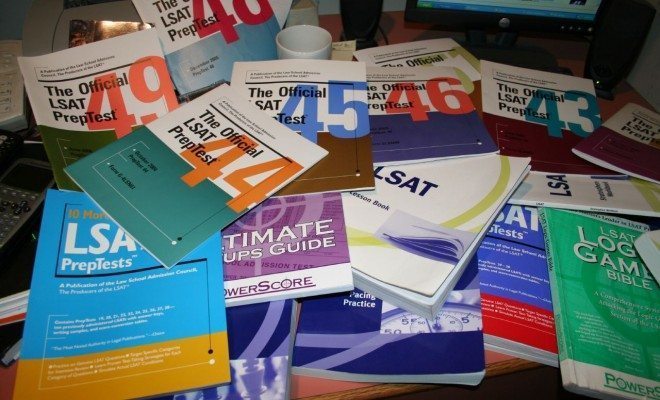
Schools
Law School Applicants at Record Low
The trend among law schools in recent years has been to move toward lower tuition and shorter programs. The driving force in all of this? Significantly fewer people are sitting for the LSAT each year. According to recent statistics, there are fewer people sitting for the LSAT today than there were in 1987. This year, just 105,532 LSAT tests were administered. This is nine percent less than the 115,988 that were administered in 1987, which is fascinating given the increased focus on higher education these days.
This trend has been getting worse in the last four years. Since 2010, the number of students taking the LSAT each year has dropped a total of 38.5 percent. This is the worst decline that the legal field has seen in recent memory.
So, why is this the case? One possibility is that students no longer see law school as a guaranteed ticket to a six-figure salary. Jobs in the legal field have become increasingly competitive, so it’s likely that many worry that they will not be able to get a job when they graduate. Or, even if they think there is a good chance that they will get a job, they might not want to pile up hundreds-of-thousands of dollars of debt trying to get there.
All of these factors have led to decreased 1L enrollment, which is a result of the drop in the number of LSAT takers. According to the American Bar Association, 1L enrollment rates have declined by 13.5 percent since 2010.
The industry is now referring to this change as the “legal technology revolution.” This is because legal technology companies are changing the legal services landscape, making it more streamlined and efficient. In addition, many firms are expediting the transition to flat-fee legal services. With more efficient practice, less manpower is needed. This means that firms no longer have a need to hire new law graduates like they used to.
It is clear that law school is not as popular an option as it used to be, with declining enrollment every year. I thought it would be interesting to see if some of the other major fields, like business and medicine, were experiencing a similar fate. Curiously enough, I found that the number of people taking the GRE ever year, which is the admissions test for most graduate schools in the United States, has drastically increased over the last several years. According to the Educational Testing Service, there has been a 38% increase in the number of people taking the GRE in the 2012-2013 testing year. This increase is most likely a result of many of the top business schools now accepting the GRE as part of the application as opposed to only the GMAT.
Not only is the number of people taking the GRE increasing significantly, but the number of people taking the MCAT and applying to medical school is increasing as well. Within the last decade, the number of applicants has increased from about 33,600 a year to almost 45,000 last year. However, the number of available spots in medical school has not gone up, meaning that the percentage of applicants who actually matriculate has actually gone down. However, that does not seem to be stopping anyone from sitting for the MCAT and applying to medical school.
So what makes law school so different from other types of grad programs? Has it lost its appeal? It’s not as though this “technology revolution” is only happening in the legal field. In medicine, with the creations of things such as new testing machinery and robotic surgery, has become increasingly reliant on technology as opposed to manpower. In a similar vein, businesses now have the ability to do most of their work and business management online.
Perhaps it’s the fact that employment is no longer secure. Perhaps it’s the almost guaranteed debt that comes along with it. Perhaps it’s because there are now hundreds of people on the internet saying that law school is a bad idea. In reality, it’s likely a combination of all of these factors. But, no one can really say for sure. Hopefully this major drop in applicants will be enough to cause law schools to lower their tuitions and provide more scholarships. We’ve already seen many schools, such as Elon Law and Wayne State Law, doing so. It is likely that if this trend of decreasing applicants continues, many more school will follow in their footsteps.
—
Brittany Alzfan (@BrittanyAlzfan) is a student at the George Washington University majoring in Criminal Justice. She was a member of Law Street’s founding Law School Rankings team during the summer of 2014. Contact Brittany at staff@LawStreetMedia.com.
Featured image courtesy of [Shane S via Flickr]








Comments